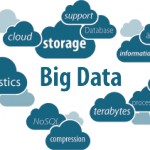 We’re undoubtedly living in a big data age, and whilst traditionally we haven’t had much control over that data, and indeed most platforms attempt to profit from our data, there is a sense that we are slowly beginning to regain control.
We’re undoubtedly living in a big data age, and whilst traditionally we haven’t had much control over that data, and indeed most platforms attempt to profit from our data, there is a sense that we are slowly beginning to regain control.
Or at least channel some of that data towards causes that matter to us. I wrote earlier this year about the Good Data Project, which uses the proceeds from selling your data to fund various good causes, Kiva style.
The concept is similar to that of the Disconnect browser extension that allows you to regain control over just who you share your data with, and when you do choose to share, you do so via a broker so you commercialize your data (or in this case donate it to a good cause).
Using data for good
It’s a theme that the UK innovation charity NESTA have explored in their recent report Using Data For Good.
The report doesn’t so much cover how we as individuals can deploy our personal data for good causes, but does explore how charities can transform how they work through better usage of data.
A prime example of what is meant is the Civic Dashboard, which was created by Data Kind and the Citizens Advice Bureau (CAB) to mine data from CAB consultations to understand whether particular social issues are beginning to emerge.
It suggests that the way charities capture, share and analyze data should be transforming how the sector operates. Alas however, the sector is generally some way off of that as it lags considerably behind other sectors in their utilization of data.
The report marks the culmination of an extensive 12 month project by Nesta to explore how data can be better used for the common good.
They suggest that, firstly, charities can use data to craft better products and services, and secondly, to better understand how society functions.
As an introduction to the kind of things that are possible once charities begin to make better use of their data, the paper is a worthwhile one. Hopefully the examples and lessons included within it will trigger some thoughts within the reader on how they can be applied in their own organizations.
The concept is similar to that of the Disconnect browser extension that allows you to regain control over just who you share your data with
Looks like an interesting report. I'll have to check that out later tonight.
Good stuff Paul. I'd love to hear your thoughts once you've read it.